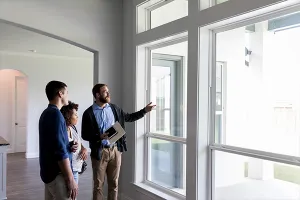By far, one of my favorite moments from last year’s annual conference in New Orleans was an event far away from the hustle and bustle of the French Quarter. I was standing outside of the legendary Dew Drop Inn on LaSalle Street, located in Uptown. From the 1940s through the 60s, the Dew Drop was a nationally known music venue. It’s been closed for decades. That night, it was the focus of our “Better Block” event.
“Better Block” is a program that seeks to revitalize commercial downtowns through community collaboration. These aren’t events with huge fanfares. They use pop-up stores, food vendors, and music to show local leaders what an area can look like with a little effort. In the grand scheme of things, one single business can have an impact that will last for years.
This is why commercial policy is a cornerstone of NAR’s advocacy agenda. We enjoy the benefits of these policies every time we visit a small business or enjoy an afternoon in a bustling neighborhood.
Throughout the year, I will be working with our NAR staff and members of the Commercial Legislation and Regulatory Advisory Board to keep commercial legislation at the forefront of the discussion in Congress. Whether it’s trying to thaw out the freeze in our credit markets or keeping on top of changes to bank capital standards, we need to protect and enhance the flow of capital to commercial real estate. More than $1.2 trillion in commercial real estate loans will come due over the next few years, and our nation’s economy depends on it.
We will also continue to better understand how these policies translate to the state and local levels. In a recent survey of NAR members who use Section 1031 like-kind exchanges, we discovered some compelling facts.
Without the Sec. 1031 exchange framework, 37% of members believe their deals would definitely not have happened. For deals that may have closed absent the Sec. 1031 exchange framework, more than half surveyed indicated that project would have been smaller than it was. Finally, commercial practitioners indicated that 50% of the value of real estate sold or transferred was a direct result of Sec. 1031 exchanges. With the average worth of these deals being over $21 million, that’s $10 million of value as a direct result of public policy. That sounds like good public policy to me. We need to defend it.
We have communicated our priorities directly to President Obama and we are active in a number of coalitions that advocate for smart, sensible, commercial policy. When we take our message directly to lawmakers, they listen. We will continue to do this – and with your involvement, we can make our voice even louder and stronger. We plan on reaching them not just in D.C., but in their home districts as well, making sure they can see the tangible effects in their own backyards.
Thank you for all the work you do. Our nation’s communities depend on it.








